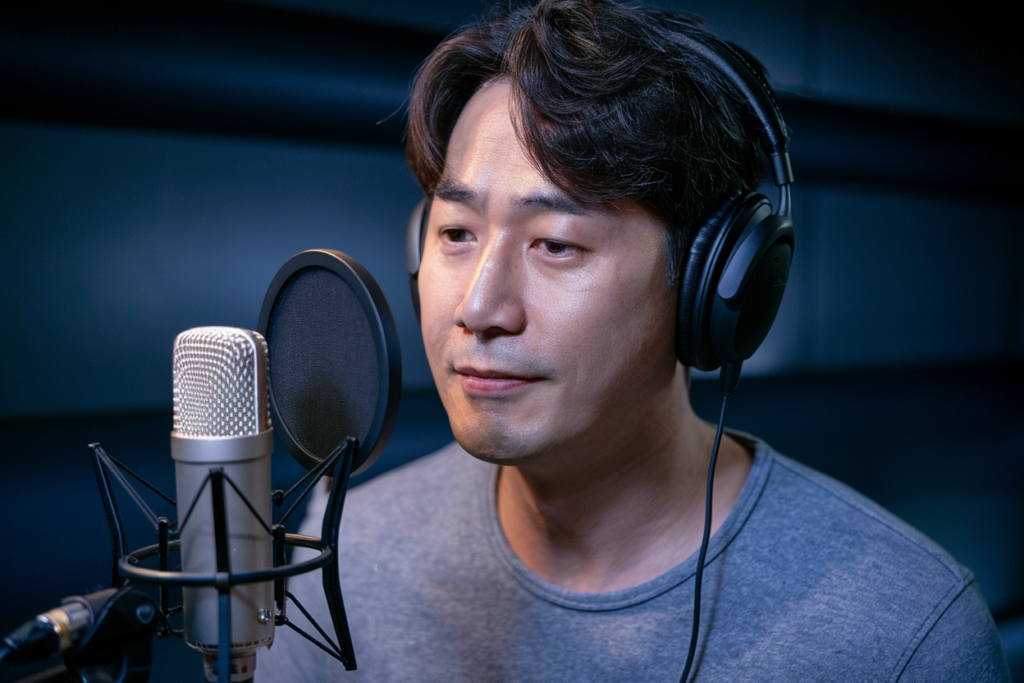Key Takeaways
- Cultural Influence: Seoul Korean is a cultural touchstone, shaping global perceptions of South Korea through its prominence in K-pop, dramas, and fashion.
- International Appeal: The dialect’s accessibility makes it easier for international audiences to connect with content, driving interest in learning Seoul Korean.
- Economic Impact: The success of the Korean entertainment industry boosts economic growth by creating job opportunities and fostering deeper connections with global fans.
- Storytelling Clarity: Seoul Korean’s clarity and expressiveness enhance storytelling in various media formats, making characters more relatable and engaging.
- Representation & Diversity: Prioritizing Seoul Korean promotes diverse narratives while bridging cultural gaps, allowing for authentic representations that resonate with worldwide audiences.
Ever wondered why media seems to favor Seoul Korean over other dialects? This phenomenon isn’t just a coincidence; it’s rooted in cultural influence, entertainment trends, and global appeal. As the heart of South Korea’s pop culture, Seoul has become synonymous with K-pop, dramas, and fashion that captivate audiences worldwide.
The Global Influence of Seoul Korean
Seoul Korean serves as a cultural touchstone, shaping global perceptions of South Korea. This dialect’s prominence in media reflects its role as the standard for communication, making it accessible for international audiences. With K-pop and Korean dramas leading the charge, this influence extends beyond language; it influences fashion, beauty standards, and lifestyle trends.
K-pop groups often use Seoul Korean in their lyrics and interviews, connecting with listeners worldwide. The catchy beats and relatable themes resonate across cultures. As a result, more people seek to learn Seoul Korean to engage deeper with their favorite artists.
In television and film, Seoul Korean dominates due to its clarity and expressiveness. Voiceovers featuring this dialect enhance storytelling by making characters relatable. Language learners gravitate toward this standardized form because it’s widely understood among Koreans.
The entertainment industry’s focus on Seoul Korean creates a demand for voice talent skilled in this dialect. Companies look for voice actors who can deliver authentic performances that reflect cultural nuances. This trend emphasizes the importance of not just speaking the language but also embodying its spirit.
As you navigate through content creation or project development aimed at engaging an international audience, consider how utilizing Seoul Korean can elevate your message. Whether you’re producing a video or crafting an advertisement, integrating aspects of this influential dialect offers authenticity that resonates globally.
Cultural Significance in Media
Seoul Korean holds a prominent place in media, shaping how stories are told and received globally. The dialect’s clarity and expressiveness enhance communication, making it ideal for various media formats like television dramas and films.
Historical Background
The historical significance of Seoul Korean traces back to the establishment of Seoul as the capital of South Korea in the late 14th century. Over centuries, this dialect evolved, becoming more standardized due to its use in education and government. Its adoption by broadcasters further solidified its status as the primary form of communication. As South Korea emerged on the global stage through cultural exports like K-pop and cinema, Seoul Korean became synonymous with modern Korean identity.
Cultural Modernization
Cultural modernization has amplified Seoul Korean’s influence across various media platforms. As society embraces new trends, this dialect reflects contemporary values and lifestyles. You’ll notice that K-pop songs often feature catchy phrases and relatable expressions that resonate with audiences both locally and internationally. This connection fosters a sense of community among fans who share their enthusiasm for artists from diverse backgrounds.
Moreover, voice talent skilled in this dialect enhances storytelling efforts within film and television. The emotional delivery found in voiceovers captivates viewers while portraying characters authentically. Audiences relate better when they hear familiar nuances spoken naturally by voice actors proficient in Seoul Korean—making them more likely to engage with content featuring this dialect.
By prioritizing Seoul Korean, creators ensure their projects reach broader audiences with cultural relevance that resonates deeply on many levels.
Economic Factors Behind Media Preference
Media’s preference for Seoul Korean stems from significant economic factors that boost its prominence on the global stage. The dialect not only serves as a cultural ambassador but also plays an essential role in driving the South Korean entertainment industry.
The Rise of Korean Entertainment Industry
The booming Korean entertainment industry, especially K-pop and dramas, has made Seoul Korean a linguistic powerhouse. This industry’s success creates job opportunities, generating income for artists, producers, and voice talent alike. You might notice how K-pop groups leverage Seoul Korean to enhance their international appeal. By using this dialect in songs and interviews, they reach broader audiences and foster deeper connections with fans globally. Increased demand for content in Seoul Korean leads to more investments in productions that utilize skilled voice actors who can deliver authentic performances.
Impact on Global Markets
Seoul’s influence extends beyond borders, impacting global markets significantly. As media consumption shifts toward streaming platforms, the need for localized content grows. Producers often seek voiceover talent fluent in Seoul Korean to ensure authenticity and resonate with audiences effectively. With every new drama or music release featuring this dialect, international sales soar alongside merchandise tied to popular K-pop idols or shows. This correlation illustrates how media preferences can drive economic growth while enhancing the visibility of Seoul’s culture worldwide.
Understanding these economic factors offers insight into why media gravitates toward Seoul Korean as a standard choice for communication within the entertainment landscape.
Language and Communication
Seoul Korean stands out as an essential tool for communication in the media landscape. Its clarity and expressiveness make it the preferred dialect for storytelling, particularly in K-pop, dramas, and other forms of entertainment.
Accessibility of Seoul Korean
Seoul Korean is widely recognized and understood by both local and international audiences. This accessibility facilitates deeper connections between creators and viewers. As content creators focus on reaching global markets, using Seoul Korean ensures that messages resonate with diverse listener bases. Many fans actively learn this dialect to engage more fully with their favorite artists, enhancing their experience through understanding lyrics and dialogues.
Linguistic Appeal
The linguistic characteristics of Seoul Korean contribute significantly to its popularity in media. The dialect’s rhythm, intonation, and vocabulary create a unique sound that captivates listeners. Voice talent proficient in this dialect brings scripts to life with nuance and emotion, making characters relatable and engaging. When voice actors utilize their skills effectively within Seoul Korean contexts, they enhance storytelling through authentic representations of culture.
Incorporating these elements makes productions not only appealing but also culturally significant. By prioritizing Seoul Korean in projects, creators ensure broader reach while maintaining authenticity that resonates with audiences worldwide.
Representation and Diversity
Representation in media shapes perceptions and influences cultural understanding. Seoul Korean serves as a unifying force, bringing diverse stories to life. Its clear articulation and expressiveness make it the preferred choice for voice talent, ensuring that narratives resonate with audiences.
Diversity enhances storytelling by showcasing various perspectives through the lens of Seoul Korean. This dialect captures nuances often lost in translation, allowing characters to feel authentic and relatable. Voice actors skilled in this dialect play a crucial role in bridging cultural gaps, connecting local stories with international viewers.
Media’s focus on Seoul Korean reflects its status as a linguistic standard within South Korea. As creators prioritize this dialect, they also embrace representation across different genres—from dramas highlighting everyday experiences to K-pop songs that celebrate youth culture. Each performance invites you into a rich tapestry of emotions.
The growth of streaming platforms has amplified the need for localized content featuring proficient voiceover talent fluent in Seoul Korean. As you engage with these productions, consider how the clarity of language enhances your viewing experience. The right voice artist can evoke empathy and understanding, making every moment impactful.
Incorporating diversity through Seoul Korean not only enriches narratives but also fosters community among fans worldwide. It encourages people from varied backgrounds to connect over shared interests—be it music or television shows—and motivates many to learn the dialect themselves.
By prioritizing representation and diversity through Seoul Korean, media continues to evolve while appealing broadly across cultures. It’s an exciting time where your engagement with these stories shapes future content creation and representation on screen.
Conclusion
The preference for Seoul Korean in media isn’t just a trend; it’s a cultural phenomenon. This dialect’s clarity and expressiveness create connections that resonate deeply with audiences around the world. As K-pop and Korean dramas continue to thrive, they bring Seoul Korean into the global spotlight, making it more than just a means of communication.
By embracing this dialect, creators ensure their stories reach wider audiences while maintaining authenticity. The economic growth driven by the entertainment industry further cements its status as the linguistic standard. Ultimately, Seoul Korean acts as a bridge between cultures, enhancing representation and fostering community among fans everywhere.
Frequently Asked Questions
Why does the media prefer the Seoul Korean dialect?
The media favors the Seoul Korean dialect due to its cultural significance and global appeal. As South Korea’s pop culture center, particularly in K-pop and dramas, this dialect serves as a standard form of communication that resonates with international audiences, making it accessible and relatable.
How does Seoul Korean influence global perceptions of South Korea?
Seoul Korean acts as a cultural touchstone that shapes how people worldwide view South Korea. Its prominence in K-pop and television enhances its image, allowing international fans to connect more deeply with local culture and trends.
What role does K-pop play in promoting Seoul Korean?
K-pop has significantly increased the popularity of Seoul Korean by using it in songs and interviews. This exposure encourages international fans to learn the dialect, fostering deeper connections with artists and enhancing their enjoyment of music.
How has the historical context shaped Seoul Korean’s status?
Since becoming South Korea’s capital in the late 14th century, Seoul’s dialect evolved into a standardized form through education and government use. This historical development solidified its status as the primary communication method across various sectors.
What economic factors contribute to preference for Seoul Korean?
The booming entertainment industry drives demand for content produced in Seoul Korean. This creates job opportunities for artists and voice talent while ensuring productions resonate authentically with both local and global audiences.
How does clarity enhance storytelling in media using Seoul Korean?
Seoul Korean’s clarity and expressiveness improve storytelling quality by making narratives more relatable for viewers. Skilled voice talent brings scripts to life, capturing nuances that enhance character authenticity and emotional engagement.
Why is representation important when using Seoul Korean in media?
Using Seoul Korean promotes diverse narratives while maintaining clear articulation that resonates with audiences. It allows characters to feel authentic, bridging cultural gaps through skilled voice acting that connects local stories with international viewers.
How do streaming platforms affect the use of Seoul Korean?
As streaming platforms grow, there’s an increasing need for localized content featuring proficient voiceover talent fluent in Seoul Korean. This trend enhances viewer experience by providing authentic representation while appealing broadly across cultures.







